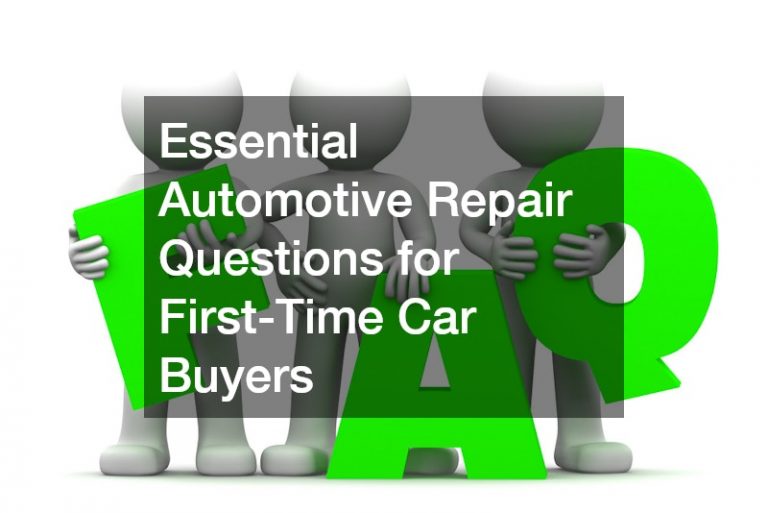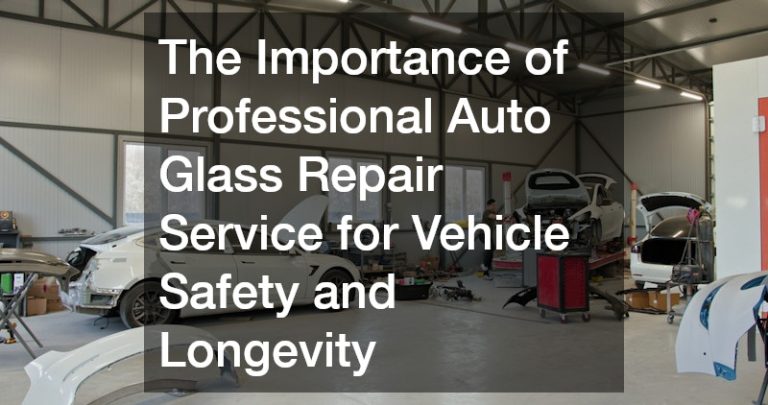Buying a used car can be a daunting task, but knowing the right automotive repair questions to ask can make the process smoother. Whether you’re looking at a private sale, a dealership, or even thinking about finding specialty businesses like a cash for junk cars service, getting a handle on the vehicle’s past and future auto repair needs will be paramount. This guide will cover the essential questions and considerations to help you make an informed decision.
What Should I Ask About the Vehicle’s Maintenance History?

One of the first automotive repair questions you should ask concerns the vehicle’s maintenance history. Knowing if the car has been regularly serviced can save you from future headaches and unexpected auto repair costs. Ask for receipts or a maintenance log that details oil changes, tire rotations, and any major repairs such as transmission support.
Check if the vehicle has had any major auto ac repair or other significant fixes that may indicate recurring issues. A well-documented service history usually points to a car that has been well-taken care of. If possible, see if the auto repair shop where the car was serviced is reputable in your area.
Another critical aspect to investigate is whether the previous owner followed the manufacturer’s recommended service intervals. Adherence to these schedules often indicates that the car has been in good hands. Be sure to correlate the reported history with any available Carfax or similar vehicle history reports.
How Can I Tell If the Car Has Been Well-Maintained?

Visual inspection is crucial when evaluating how well-maintained a vehicle has been. Begin by examining the condition of the truck parts, engine, and underside of the vehicle for any signs of rust or leakage. These issues can be red flags indicating neglected maintenance or significant problems that require urgent repairs.
Look at the condition of consumables like tires, windshield, and fluids. Well-maintained vehicles typically have high-quality windshield repairs and proper fluid levels. Additionally, check if the auto detailing is up to standard. Windscreen cracks, mismatched paint, or loose interior components can signify neglect.
Listen for any unusual sounds during a test drive, such as rattling or squeaks, which could indicate underlying issues. A well-maintained car will drive smoothly without any out-of-the-ordinary noises. Don’t hesitate to visit local auto collision centers to get a professional opinion if you’re unsure.
What Are the Most Common Repairs for This Make and Model?

Every make and model has its unique set of common repairs. Research online forums and consumer reports to uncover typical issues related to the specific car you’re interested in. This groundwork can save you from future expenses and give you an idea about potential auto repair needs.
Common auto ac repair or transmission problems in certain models are often flagged in these resources. Knowing these common auto repair issues can help you negotiate better deals or plan for future costs. For instance, some cars have notorious issues with their cooling systems, which could require more frequent inspections.
While you’re at it, consider looking up local auto collision centers for any recalls associated with the model. Staying informed about these typical problems allows you to ask more meaningful automotive repair questions and make an informed purchasing decision.
How Often Should I Expect to Service This Vehicle?

The frequency of servicing a vehicle depends largely on the make and model, as well as how you intend to use it. Generally, high-mileage cars or those used for towing often require more frequent servicing. It’s crucial to have a clear understanding of the service intervals recommended by the manufacturer.
Another factor influencing service frequency is the driving conditions. Vehicles driven in harsh climates or stop-and-go traffic may need more regular upkeep, including frequent auto ac repair checks. Consult the owner’s manual and ask the auto repair shop for their recommendations based on the vehicle’s condition and your driving environment.
For a better estimate, speak with local towing companies and auto repair professionals who can provide insights based on similar vehicles they’ve serviced. A well-maintained vehicle can make a significant difference in overall service costs over time.
What Are the Signs That a Car Needs Immediate Repairs?
Recognizing the signs that a car needs immediate repairs can save you from more significant issues down the line. Listen for unusual noises while driving. Screeches, grinding, or knocking sounds can be early warnings of more serious problems requiring urgent attention from an auto repair shop.
Keep an eye on dashboard warning lights. Ignoring these can lead to more extensive and costly repairs. Common issues include engine light alerts, low oil pressure, and brake system warnings. Addressing these signals promptly is essential.
You should also look out for any signs of fluid leaks under the vehicle. Pooling liquids often indicate problems with the engine, cooling system, or transmission support. Quick windshield repairs or checking the truck parts can sometimes help identify the root cause before it escalates.
How Do I Know if the Price of Repairs is Fair?
Determining whether you’re getting a fair price for auto repairs can be challenging but necessary for budgeting. Start by getting multiple quotes from different auto repair shops. This method helps you gauge the standard market rates for the particular services you need.
Consult online resources and forums to see what others are paying for similar repairs. Websites like RepairPal can provide price estimations based on your vehicle’s make and model. This preliminary research will give you a reasonable baseline to compare against.
You can also consult local towing companies for their opinions on what constitutes fair pricing. Their insight, along with that of independent auto repair shops, can serve as benchmarks. If a given auto repair shop’s quote seems unusually high or low, it’s often worth investigating further.
What Should I Look for During a Pre-Purchase Inspection?
A comprehensive pre-purchase inspection can reveal underlying issues that may not be immediately apparent. Check the condition of the truck parts, engine, and transmission support. Any signs of damage or wear could indicate future repairs, adding to the overall cost of the vehicle.
Ask for the vehicle to be inspected at a reputable local auto collision center or independent mechanic. Their trained eyes can often catch problems that you might overlook. Factors like mismatched paint, uneven tire wear, or subpar windshield repairs can signal more serious issues.
During the inspection, make sure to scrutinize the interior for neglected auto detailing. Worn-out seats, broken switches, and an unclean interior are often signs of neglect. A thorough inspection can save you from unwelcome surprises after purchase.
How Can I Determine the Cost of Routine Maintenance?
Knowing the cost of routine maintenance helps you budget more effectively and avoid unexpected expenses. Start by consulting the owner’s manual for the manufacturer’s recommended service intervals and typical costs. This document provides a solid framework for what to expect in terms of general upkeep.
Additionally, speak with a trusted auto repair shop for an estimate of routine maintenance expenses. These professionals can offer insights tailored to your specific vehicle and driving habits. Understanding the regular costs involved helps you plan better and avoid costly surprises down the road.
Online tools and forums can provide a wealth of information about maintenance costs for specific makes and models. By incorporating varied perspectives, you can get a more accurate picture of what routine care entails. This knowledge equips you to make better automotive repair questions when consulting with mechanics or auto detailing experts.
Are There Recalls or Common Issues I Should Be Aware Of?
Understanding if a vehicle has been subject to recalls or common issues is crucial for assessing its reliability and safety. You can find this information through resources like the National Highway Traffic Safety Administration (NHTSA) or the manufacturer’s website. This step should never be overlooked when forming your automotive repair questions.
Aside from recalls, forums and user reviews can provide firsthand accounts of common issues faced by owners of the same make and model. This research is invaluable for predicting potential problems. For example, frequent auto ac repair issues in certain models may be a red flag.
Bring up any known recalls or issues during your pre-purchase inspection or when talking to your auto repair shop. This preparation can help you determine if the car has already had necessary fixes or if you should expect future problems. Staying informed gives you leverage in negotiations and future planning.
How Do I Find a Trustworthy Mechanic?
Finding a trustworthy mechanic can significantly affect the longevity and performance of your vehicle. Start by seeking recommendations from friends, family, or online reviews. Word-of-mouth referrals can often lead you to reliable and reputable auto repair shops and mechanics in your area.
Check if the mechanic is certified by reputable organizations such as the National Institute for Automotive Service Excellence (ASE). Certifications are often a good indicator of a mechanic’s skill and knowledge. Additionally, consider how long the auto repair shop has been in business; longevity is often a sign of trustworthy service.
You can also visit the shop for an initial consultation to get a feel for their professionalism and customer service. Discussing your specific automotive repair questions and observing their responses can help you decide if they are the right fit. A trustworthy mechanic can make all the difference in maintaining your vehicle’s health.
How Can I Extend the Life of My Vehicle?
Extending the life of your vehicle involves regular maintenance and attentive care. Routine tasks such as timely oil changes, tire rotations, and fluid top-offs can go a long way in preventing major auto repair needs. Regularly consulting your vehicle’s manual for maintenance recommendations is a wise starting point.
Maintain routine checks for your auto ac repair needs, and address any minor issues before they escalate. Ensuring that windshield repairs are completed promptly, and not delaying other small fixes, can prevent larger problems down the road. Keeping up with these minor repairs can notably extend the life of your vehicle.
Consider high-quality auto detailing to keep the interior and exterior in good condition. Not only does this make your car more pleasant to drive, but it also preserves its value. Regular visits to an auto repair shop for inspections and preventative maintenance can significantly enhance your vehicle’s longevity.
In conclusion, asking the right automotive repair questions can make all the difference when purchasing a vehicle. From understanding the vehicle’s maintenance history to identifying signs of immediate repairs, the knowledge you gain can guide your decision-making process. Being informed about common repairs, routine maintenance costs, and potential recalls allows you to plan effectively and avoid unexpected expenses. Additionally, knowing the average lifespan of certain vehicle components can help you anticipate future repairs and budget accordingly. By staying proactive and asking the right questions, you can ensure that you are making a well-informed decision when it comes to purchasing a vehicle.
Finding a trustworthy mechanic and staying on top of regular upkeep can extend the life of your vehicle. The importance of routine tasks such as auto detailing, windshield repairs, and minor fixes cannot be overstated. These practices not only maintain your car’s value but also ensure its reliable performance over the years. Regular maintenance can also help prevent costly repairs down the line, saving you time and money in the long run. Additionally, keeping detailed records of all maintenance and repairs can help you track your vehicle’s history and make more informed decisions in the future.
Ultimately, a well-informed approach to buying and maintaining a vehicle can result in a satisfying and worry-free ownership experience. By asking comprehensive automotive repair questions and doing your due diligence, you can drive confidently, knowing you’ve made the best possible choice. Regular maintenance and attention to detail can prevent major issues from arising, saving you time and money in the long run. Additionally, staying informed about your vehicle’s needs and taking proactive measures can help you avoid unexpected breakdowns or costly repairs. Be sure to reach out to local professionals in your area if you have any concerns about your vehicle or interest in upgrades.








